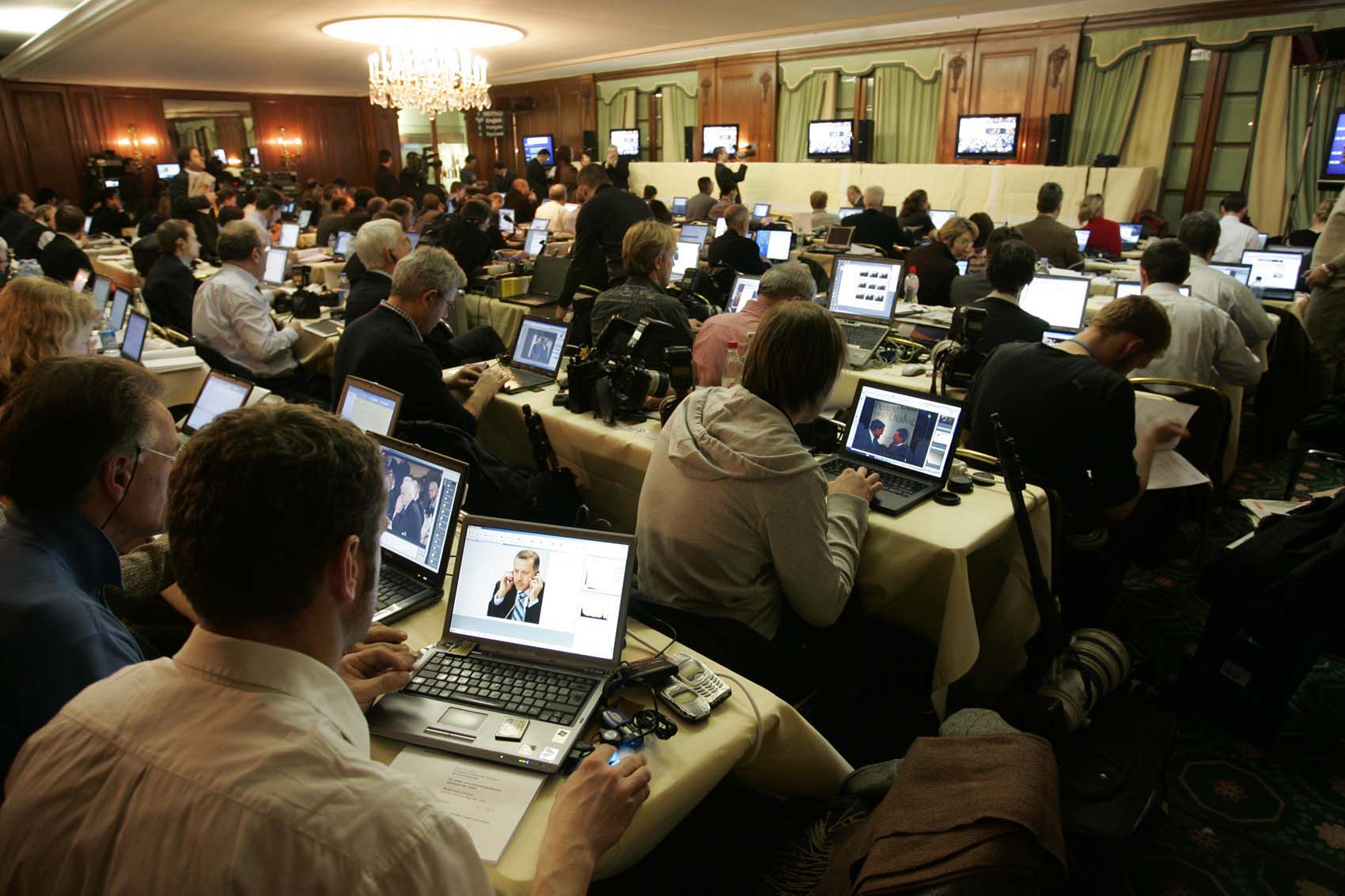The profession of the journalist is blurred.
The rise in portable technology has created the ability to project ideas at any given moment from any given place. Add this to the job losses at printing presses, the rising number of journalism courses offered at university and the expectation for immediate news from consumers and the market is as competitive as ever.
So how does this bode for the studying journalist?
The perspectives from each level – writers from the top two publications in Melbourne, an editor for an online news website and a student hoping to land a job – demonstrate the current consensus; work hard and the rewards will follow. But is the pay worth the trouble? Is there a future for the traditional journalist? Is the industry becoming too feminised? And does the quality remain with technological advancement? Research into credited documents can illuminate the issue.
Amanda Wilson, a veteran of the traditional format, stated her beliefs in a research paper titled Journalism at the speed of bytes: Australian newspapers in the 21st century in 2012 using the words “climate of fear”. She posed the question: how can the foundations remain strong with the integration of so many new mediums?
In the paper, writers blame digital technology for the disruption and also argue a loss of professionalism through the shift. The researchers go so far as suggesting the result could mean “damage to democracy and social well-being” as we know it. The opinion of those in the middle of this shift is more important now than it has ever been, in terms of both employment and technology.
“I think these days it can help if you specialise in a particular area, the industry has always been tough to break into and it’s only getting more difficult,” said Josh Gordon, economics writer for The Age. Citing both structural and cyclical reasons and an increasing pressure on mainstream media, Gordon believes the reliance on advertising for revenue struggles against the power of the internet.
Websites originating in Australia such as www.news.com.au cover every topic, and place full emphasis online. To further the issue the website posted an article about Fairfax and the job losses that began last year, with the latest issue regarding a request for employees to voluntarily accept a redundancy package.
The Herald Sun’s Andrew Bolt, one of the most controversial journalists in Australia, dropped out of his university course to seek employment. In an article written by Jonathan Green of the ABC, Bolt was placed in the bracket of journalists that are “so loud, so insistent, so ubiquitous that they are capable of turning the national mind”.
“I just jumped at the first offer I got, and that’s when I started to really learn,” Bolt said.
“I read the best journalism I could, from Orwell to Wolfe, and just kept challenging other opinions,” he said.
Bolt’s advice to students of the industry is to write with flair, every day, and send it to those that will publish to prove to yourself and to others that you can do it, no matter the medium.
“The trick is to land your first job; then you have the chance to show what you can do.”
While the opinion of leading men in traditional formats is important for students, the latest statistics demonstrate the industry is largely dominated by women. In a study published in 2009 by Griffith University, the consensus was that the lack of interest for men begins at a high school level, as teachers are responsible for the majority of student’s decisions regarding tertiary education. The imbalance isn’t restricted to Australia either, spreading internationally, with an enjoyment of the English subject being the key to following the journalism path.
The apparent movement from reporting current events to exploring entertainment and lifestyle is seen as a feminised shift, with the perception of being fun and glamorous, but how do females feel about the current climate of the industry? Ellen Smith is an editor who has worked on a variety of websites catering for people in their twenties.
“It (the journalism industry) is ruthless; people will do anything for a good story,” Smith said.
“The world is an unstable place for celebrities and politicians, the media has exploded through the internet and no one is safe, so this is where the interest lies.”
Having never studied journalism and instead following a love for writing, Smith believes citizen journalism and blogging has opened up new ways to find a career in the industry.
“I’ve had various writers gain paid employment through recognition off my website, which is brilliant, but there is no way traditional media will survive.
“If I can sit at my computer and get all the information I need, why would I go down the street and pay for the same articles?”
According to the latest Pay Scale data, journalists in Melbourne earn between $35,499 and $73, 329 per year. Statistics on Pay Scale suggest that more than two thirds of journalists are women, supporting the Griffith research. A similar figure shows that those currently working in the industry have been employed between one-four years, suggesting high movement into other sectors including editing and specialised fields. Social media marketing was found to be the third most vital skill for a journalist, an area the younger generation thrive within.
The most impacted by the shifts in the journalism industry are the current wave of students in university. Raquel Gubroail, studying at Latrobe University Melbourne, understands the competitive nature of the field but is excited by the challenge.
“I’ve always been told that finding a job in journalism would be tough, people would dishearten me, but there are opportunities out there for the hard workers,” Gubroail said.
With the goal of writing for a fashion magazine after completion of the course, Gubroail said the degree is giving her confidence to find a job in an industry she is passionate about.
“I love writing, but the media should offer more internships and roles for studying journalists.
“I had a stint with Channel 31 and it was the best experience of my life.”
Gubroail’s determination demonstrates the excitement the industry creates for young people, even with the unstoppable shift towards technological advancement and the growing number of journalism students in her course. Competition should be tackled, not shunned, and if anyone can handle the internet and new forms of media it is surely the youth of today.
By Chris Sutton










What a spectacular piece you created when forming all of this information together. Not because I was featured but just the way in which you told the story. So proud of you. Many more achievements like this to come, I’m sure of it. Congratulations Chris!
Comments are closed.